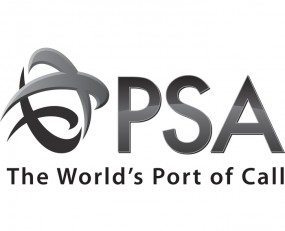
It appears that the Port of Singapore is copying the corporate strategy of its rivals and entering the freight forwarding sector.
PSA International has bought the freight forwarder, BDP International. PSA International has purchased 100% of the equity of BDP but other financial details have not been disclosed. Bearing in mind BDP’s size, it is likely that the purchase price was greater than $1bn. The previous owner was Greenbriar Equity Group, which bought BDP in 2018.
The Philadelphia-based forwarder has a global presence and a moderately broad market presence but is particularly exposed to the US chemical, oil and gas sectors. Consequently, it is somewhat more involved in containerised sea freight traffic. However, it also has exposure to the life science business, this apparently growing out of its work with chemical manufacturers. All of these elements would be attractive to PSA International, with its obvious interest in container freight but also with its home state of Singapore being an important global centre of life science logistics.
Yet, whilst BDP International may be a good fit for PSA, the question still arises, why does PSA want to buy a freight forwarder anyway? The answer undoubtedly lies in the example of the likes of Maersk, CMA CGM and DP World. Their forays into freight forwarding and other aspects of logistics such as warehousing have been, so far, surprisingly successful. It is hard not to think that PSA wants to travel down a similar path. As Tan Chong Meng, Group CEO of PSA International articulated, that this pioneering acquisition for PSA seeks to deliver “a global integrated supply chain and transportation solutions provider with end-to-end logistics capabilities. Its strengths will complement and extend PSA’s capabilities to provide agile, resilient and innovative cargo solutions. Customers will be able to benefit from the extensive capabilities of both BDP and PSA, while accelerating their shift towards sustainable supply chains. We see this as a significant and strategic step forward in our vision to co-create an Internet of Logistics”.
Of course, it might be suggested that the corporate strategies of PSA’s rivals have been helped by the unforeseen boom in freight forwarding over the past couple of years. However, what PSA International seems to be seeking to do is adapt to a future where logistics assets have a closer relationship with each other, resulting in major asset owners such as terminal operators needing to be closer to other logistics elements on supply chains.
Source: Transport Intelligence, 2nd December 2021
Author: Thomas Cullen